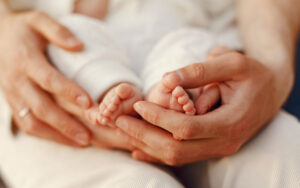For women, the age between 20 to 30 is considered the ideal time for planning a pregnancy. As a woman ages, particularly after 30—and more significantly after 35—the number and quality of eggs in the ovaries begin to decline. This natural aging process affects fertility and can make it more challenging to conceive, even with the help of IVF. Age-related medical conditions such as hypertension, diabetes, fibroids, or endometriosis may also develop, further reducing the chances of a successful pregnancy.
Additionally, the risk of chromosomal abnormalities in eggs increases with age. However, thanks to advancements in fertility treatments such as egg freezing, PGT (Preimplantation Genetic Testing), and donor egg programs, many women can still conceive and deliver healthy babies even after 35. Let’s take a closer look at these age-related challenges and how modern IVF practices can help.
1. Declining Ovarian Reserve:
One of the biggest concerns after 35 is a decrease in ovarian reserve. With age, the ovaries produce fewer high-quality eggs, leading to fewer viable embryos during IVF. Unfortunately, there are no medicines currently available that can reverse this age-related decline—just like other organs, ovaries also “age.” This is why it’s important to consider fertility preservation methods like egg or embryo freezing before the age of 30 if you plan to postpone pregnancy.
2. Egg Quality and Chromosomal Abnormalities:
3. Poor Response to Ovarian Stimulation:
4. Financial and Emotional Stress:
As the quality and quantity of eggs decline, the number of successful embryos also drops, often requiring multiple IVF cycles. This can be physically, emotionally, and financially draining. That’s why it’s crucial to be mentally and financially prepared in advance and to explore all available options and support systems.
Book an appointment -





